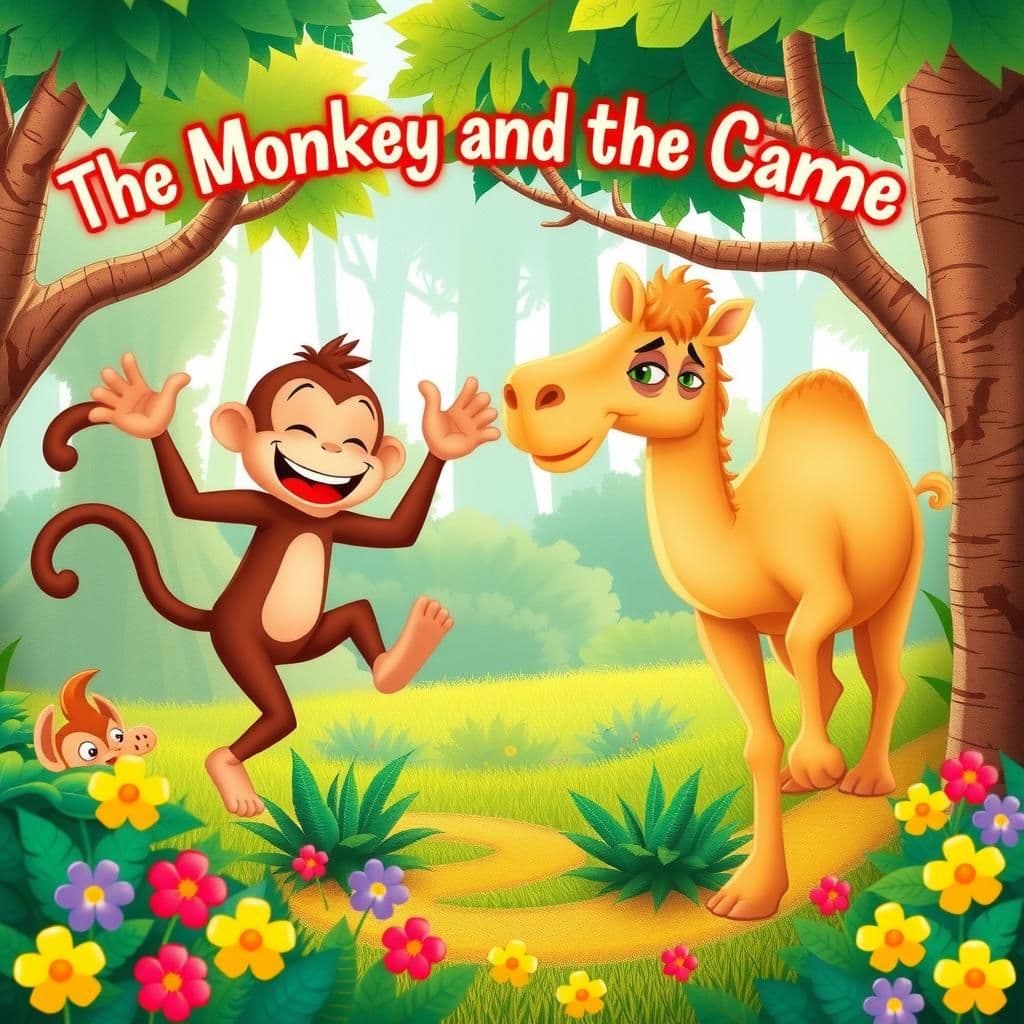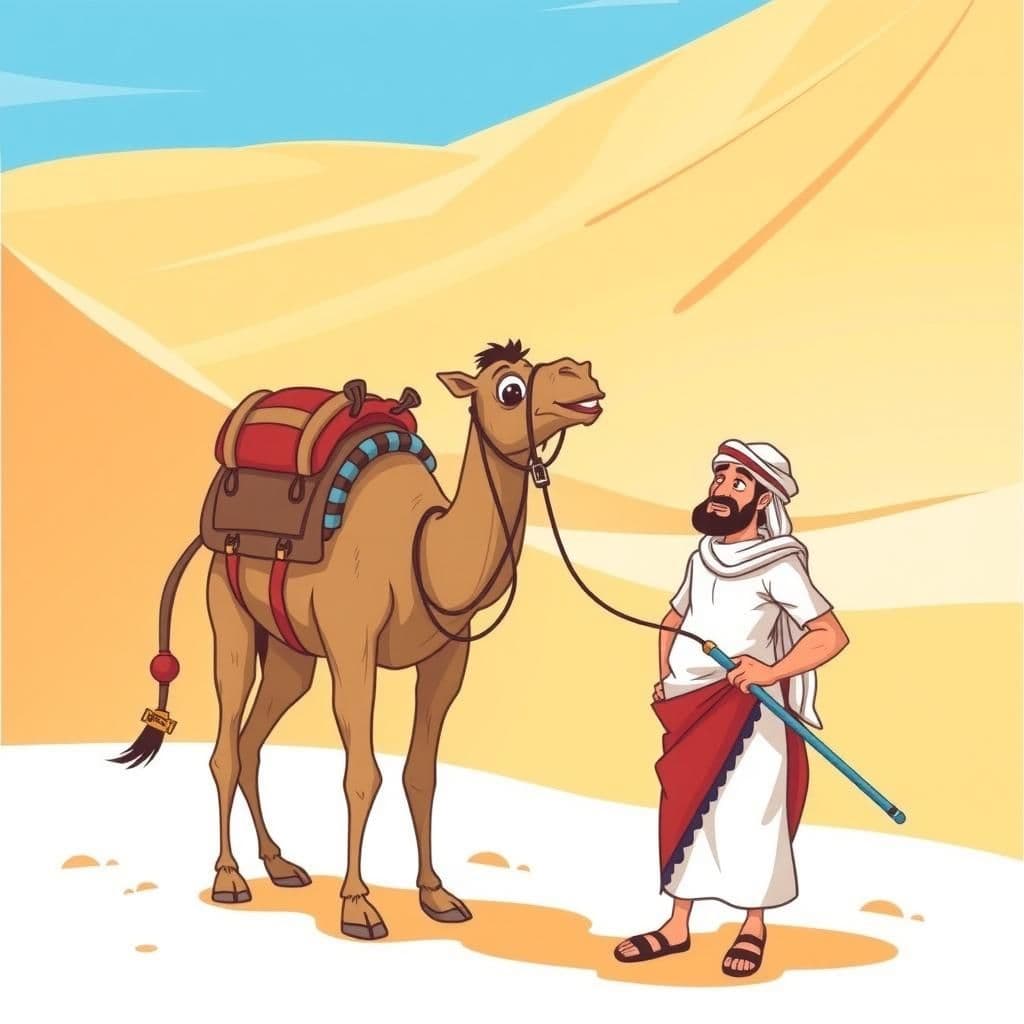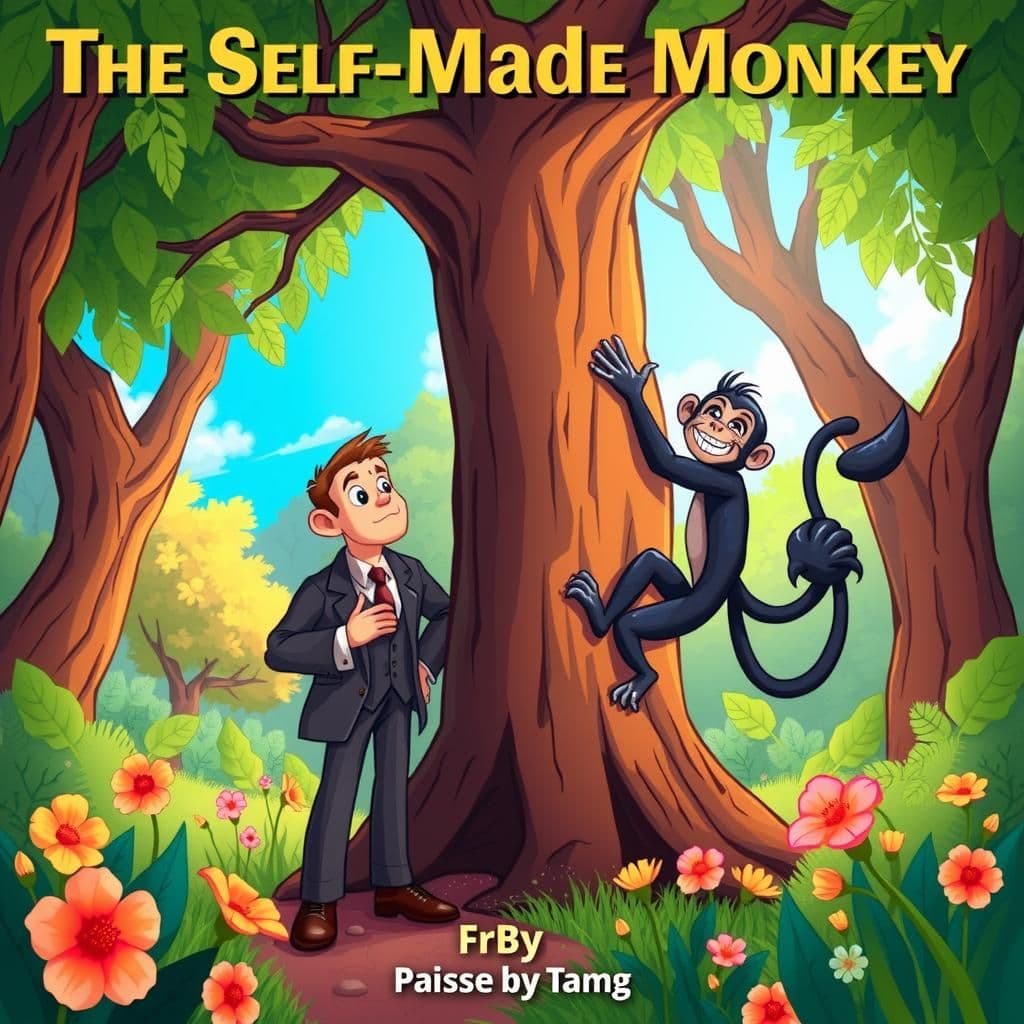The Monkey and the Camel

Story Summary
In the inspirational short story "The Monkey and the Camel," the Monkey captivates the forest animals with his delightful dance, earning their applause. Envious of his success, the Camel attempts to imitate him but fails miserably, leading to his embarrassment and expulsion by the other animals. This quick moral story illustrates the life lesson that it is foolish to try to ape those who are more skilled, reminding us of the importance of recognizing our own strengths.
Click to reveal the moral of the story
The moral of the story is that attempting to imitate those more skilled than oneself can lead to embarrassment and rejection.
Historical Context
This fable is reminiscent of Aesop's Fables, a collection of moral tales attributed to the ancient Greek storyteller Aesop, dating back to the 6th century BCE. The story highlights themes of envy and the folly of attempting to imitate those who possess greater talents, a common motif in various cultures' folklore, serving as a cautionary tale about recognizing one's own limitations. Variations of this fable have appeared in numerous cultures, reinforcing the universal moral against the dangers of envy and pretension.
Our Editors Opinion
This fable illustrates the dangers of envy and the folly of trying to imitate those more skilled than oneself, a lesson that remains relevant in today's social media-driven age where people often strive for validation by mimicking others rather than embracing their unique talents. For example, a young artist might feel pressure to replicate the style of a popular influencer for online recognition, only to be criticized for lacking authenticity, ultimately learning that true success comes from showcasing their own creativity rather than imitating someone else's.
You May Also Like

The Camel
In "The Camel," an engaging moral tale from the top 10 moral stories, a man initially flees in fear from the creature's vast size. However, as he witnesses the camel's gentle nature, he gains confidence and learns to control it, illustrating that familiarity can help overcome dread. This thought-provoking moral story emphasizes the power of understanding and familiarity in overcoming fear.

The Camel and the Arab
In the well-known moral story "The Camel and the Arab," an Arab camel-driver asks his camel whether it prefers to go uphill or downhill after being loaded. The camel wisely points out that the real preference would be for a flat, level path through the desert, emphasizing the absurdity of the limited choices presented. This inspirational story with moral highlights the importance of recognizing broader options in life, making it a culturally significant example of moral-based storytelling.

The Self-Made Monkey
In this short moral tale, a humble man in a high political office boasts about being a self-made man to a Monkey he encounters in the forest. The Monkey challenges his claim by demonstrating self-creation in a humorous way, ultimately conveying that merely being self-made does not constitute true achievement. This meaningful story imparts a simple lesson about the distinction between self-creation and genuine accomplishment, highlighting the value of humility and recognition of true merit.
Other names for this story
Monkey's Dance, The Jealous Camel, Forest Follies, Dance of Disgrace, Envy in the Jungle, The Camel's Folly, Aping the Best, Ridiculous Revelry
Did You Know?
The story highlights the theme of envy and the folly of imitating those who possess skills or talents that one does not, ultimately illustrating how such attempts can lead to humiliation rather than admiration.
Subscribe to Daily Stories
Get a new moral story in your inbox every day.